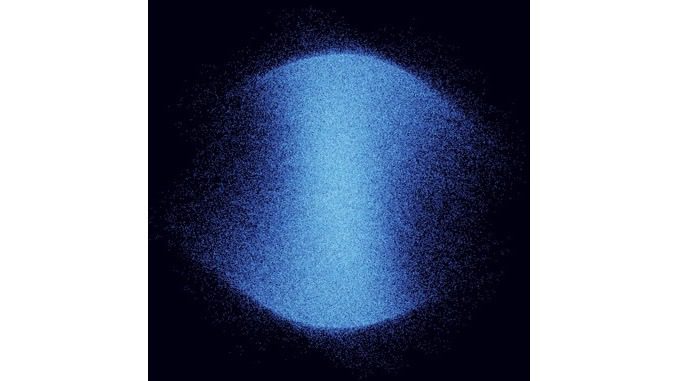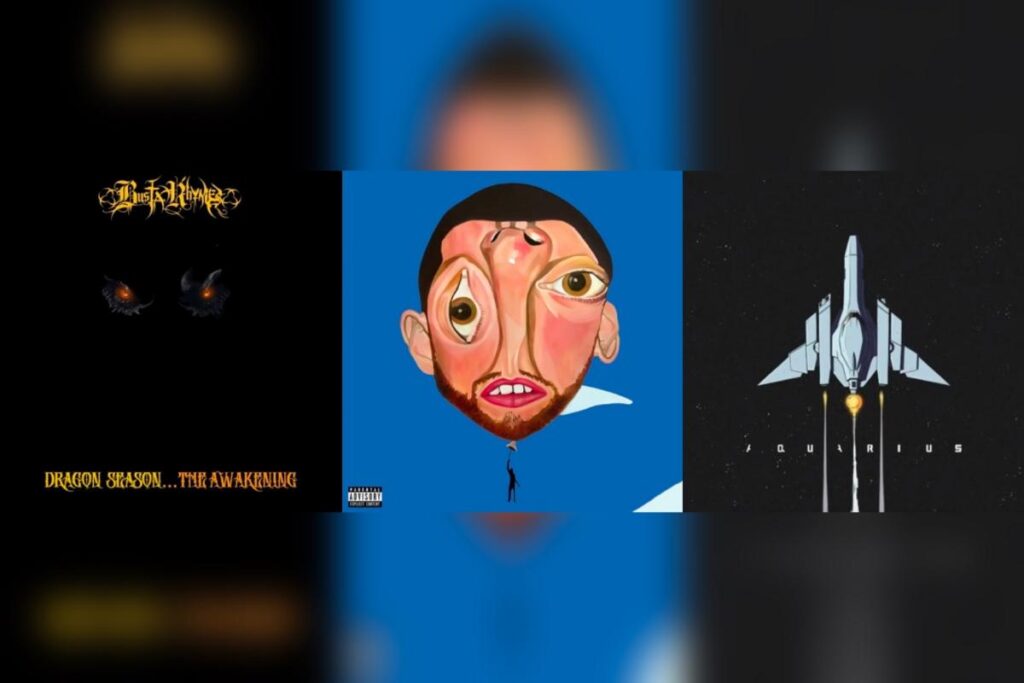Ever since Deafheaven broke through with their gorgeous, genre-blurring sophomore album Sunbather in 2013, the kind of people who debate such things have debated whether the Bay Area band qualify as “metal.”
That debate is now over. Deafheaven have ended it with their new album Infinite Granite.
What made Sunbather a revelation—and more than a bit polarizing—was its uncommon combination of black metal elements (blast beats, vocalist George Clarke’s strangled, grayscale shrieks) with soaring post-rock-style guitars and the melancholy haze of shoegaze. To be clear: Many bands had already taken melodic and atmospheric approaches to black metal. Deafheaven made waves because they took that formula and turned toward the light, illuminating a distant corner of extreme music that was not only uncharted, but was also closer and more accessible to non-metal listeners. At the end of that year, Sunbather finished 19th in the Village Voice’s legendary-but-now-defunct Pazz & Jop poll of music critics—right between Drake and The National.
Deafheaven have made two albums since Sunbather: 2015’s New Bermuda and 2018’s Ordinary Corrupt Human Love. Both are very good, and each one inches away from black metal and toward post-rock and shoegaze. Infinite Granite ditches the inching and dives into the deep end of Deafheaven’s softer, prettier predilections. Gone, mostly, are the blast beats and gone, mostly, are Clarke’s howls and growls, which appear most prominently in the last three minutes of the album’s stunning final song, “Mombasa”—a classic closing number that begins with quietly intertwined acoustic and electric guitars, and evolves into a dream-pop lullaby before crescendoing into chilly calamity. “Travel now where they can’t let you down,” Clarke screams, delivering Infinite Granite’s most unintelligible lyrics. “Where you can’t fail them now.”
The road to “Mombasa” is paved with eight tracks of buoyant and beautiful post-rock and shoegaze that, even with the context of their past material, paints Deafheaven in a whole new light. The opener, “Shellstar,” finds guitarists Kerry McCoy and Shiv Mehra at the top of their game, turning their 12 combined strings into a dizzying array of squeals, chimes, arpeggios and walls of sound. “Great Mass of Color” was the album’s first single, thanks, no doubt, to its sparkling chorus, but it’s also a showcase for the band’s charismatic rhythm section, drummer Dan Tracy and bassist Chris Johnson, who establish a dynamic foundation for Deafheaven’s more melodic elements.
Speaking of melody: Infinite Granite is loaded with great songs, skillful playing and tasteful production by Justin Meldal-Johnsen, who’s best known for helping artists like Paramore and St. Vincent navigate the tricky space between pop and rock. And it could all be for naught if Clarke had decided to stop screaming, but couldn’t sing. Turns out he can. Throughout the album, he delivers a vocal performance that is studied, nuanced and impressive as he sings of frigid bedrooms, sleepless nights, stared-at ceilings and the light of daybreak. Clarke has said Infinite Granite was written during a period of “heavy insomnia,” and you can practically hear him tossing and turning through this passage from “Lament for Wasps,” a tune stuffed to the brim with early-’90s shoegaze vibes:
Another night spent fussing
Feasting like the lords
Laughing at the fronting
Singing to the chords of Hell imagined
(As a side note, it’s nice just to be able to understand Clarke’s words for once.)
In the middle of Infinite Granite is “Neptune Raining Diamonds,” a warm and groggy instrumental interlude that lands somewhere near the ambient end of the synth-music spectrum. It doesn’t feel like an essential part of the album, necessarily, but it’s a nice palate cleanser and change of pace. Perhaps in the band’s mind, it’s a bridge of some sorts, or an extended intro to “Lament For Wasps.” Who knows?
Just for fun, though, let’s envision “Neptune” as a quick peek at where Deafheaven goes from here. Could this band make an excellent ambient album in 2029? If what they’ve done so far is any guide, the answer has to be “yes.” Over the past eight years, they’ve demonstrated their creative ambition, as well as the courage to move away from the sound that made them successful. And on Infinite Granite, they prove they have the chops to follow the path of their choosing, wherever it may lead.
Ben Salmon is a committed night owl with an undying devotion to discovering new music. He lives in the great state of Oregon, where he hosts a killer radio show and obsesses about Kentucky basketball from afar. Ben has been writing about music for more than two decades, sometimes for websites you’ve heard of but more often for alt-weekly papers in cities across the country. Follow him on Twitter at @bcsalmon.




